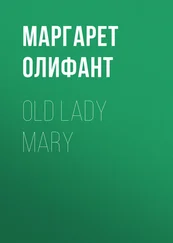Маргарет Олифант - Ombra
Здесь есть возможность читать онлайн «Маргарет Олифант - Ombra» — ознакомительный отрывок электронной книги совершенно бесплатно, а после прочтения отрывка купить полную версию. В некоторых случаях можно слушать аудио, скачать через торрент в формате fb2 и присутствует краткое содержание. Жанр: foreign_prose, literature_19, foreign_antique, на английском языке. Описание произведения, (предисловие) а так же отзывы посетителей доступны на портале библиотеки ЛибКат.
- Название:Ombra
- Автор:
- Жанр:
- Год:неизвестен
- ISBN:нет данных
- Рейтинг книги:3 / 5. Голосов: 1
-
Избранное:Добавить в избранное
- Отзывы:
-
Ваша оценка:
- 60
- 1
- 2
- 3
- 4
- 5
Ombra: краткое содержание, описание и аннотация
Предлагаем к чтению аннотацию, описание, краткое содержание или предисловие (зависит от того, что написал сам автор книги «Ombra»). Если вы не нашли необходимую информацию о книге — напишите в комментариях, мы постараемся отыскать её.
Ombra — читать онлайн ознакомительный отрывок
Ниже представлен текст книги, разбитый по страницам. Система сохранения места последней прочитанной страницы, позволяет с удобством читать онлайн бесплатно книгу «Ombra», без необходимости каждый раз заново искать на чём Вы остановились. Поставьте закладку, и сможете в любой момент перейти на страницу, на которой закончили чтение.
Интервал:
Закладка:
CHAPTER XV
It was summer when Kate arrived at the Cottage, and it was not till the Easter after that any disturbing influences came into the quiet scene. Easter was so late that year that it was almost summer again. The rich slopes of the landslip were covered with starry primroses, and those violets which have their own blue-eyed beauty only to surround them, and want the sweetness of their rarer sisters. The landslip is a kind of fairyland at that enchanted moment. Everything is coming—the hawthorn, the wild roses, all the flowers of early summer, are, as it were, on tiptoe, waiting for the hour of their call; and the primroses have come, and are crowding everywhere, turning the darkest corners into gardens of delight. Then there is the sea, now matchless blue, now veiled with mists, framing in every headland and jutting cliff, without any margin of beach to break its full tone of colour; and above, the new-budded trees, the verdure that grows and opens every day, the specks of white houses everywhere, dotted all over the heights. Spring, which makes everything and every one gay, which brings even to the sorrowful a touch of that reaction of nature that makes pain sorer for the moment, yet marks the new springing of life—fancy what it was to the sixteen-year-old girl, now first emancipated, among people who loved her, never judged her harshly, nor fretted her life with uncalled-for opposition!
Kate felt as if the primroses were a crowd of playmates, suddenly come to her out of the bountiful heart of nature. She gathered baskets full every day, and yet they never decreased. She passed her mornings in delicious idleness making them into enormous bouquets, which gave the Cottage something of the same aspect as the slopes outside. She had a taste for this frivolous but delightful occupation. I am free to confess that to spend hours putting primroses and violets together, in the biggest flat dishes which the Cottage could produce, was an extremely frivolous occupation; most likely she would have been a great deal better employed in improving her mind, in learning verbs, or practising exercises, or doing something useful. But youth has a great deal of leisure, and this bright fresh girl, in the bright little hall of the Cottage, arranging her flowers in the spring sunshine, made a very pretty picture. She put the primroses in, with their natural leaves about them, with sweet bunches of blue violets to heighten the effect, touching them as if she loved them; and, as she did it, she sang as the birds do, running on with unconscious music, and sweetness, and gladness. It was Spring with her as with them. Nothing was as yet required of her but to bloom and grow, and make earth fairer. And she did this unawares and was as happy over her vast, simple bouquet, and took as much sweet thought how to arrange it, as if that had been the great aim of life. She was one with her flowers, and both together they belonged to Spring—the Spring of the year, the Spring of life, the sweet time which comes but once, and never lasts too long.
She was thus employed one morning when steps came through the garden, steps which she did not much heed. For one thing, she but half heard them, being occupied with her ‘work,’ as she called it, and her song, and having no fear that anything unwelcome would appear at that sunny, open door. No one could come who did not know everybody in the little house, who was not friendly, and smiling, and kind, whose hand would not be held out in pleasant familiarity. Here were no trespassers, no strangers. Therefore Kate heard the steps as though she heard them not, and did not even pause to ask herself who was coming. She was roused, but then only with the mildest expectation, when a shadow fell across her bit of sunshine. She looked up with her song still on her lip, and her hands full of flowers. She stopped singing. ‘Oh! Bertie!’ she cried, half to herself, and made an eager step forward. But then suddenly she paused—she dropped her flowers. Curiosity, wonder, amazement came over her face. She went on slowly to the door, gazing, and questioning with her eyes.
‘Are there two of you?’ she said gravely. ‘I heard that Bertie Hardwick was coming. Oh! which is you? Stop—don’t tell me. I am not going to be mystified. I can find it out for myself.’
There were two young men standing in the hall, who laughed and blushed as they stood submitting to her inspection; but Kate was perfectly serious. She stood and looked at them with an unmoved and somewhat anxious countenance. A certain symbolical gravity and earnestness was in her face; but there was indeed occasion to hesitate. The two who stood before her seemed at the first glance identical. They had the same eyes, the same curling brown hair, the same features, the same figure. Gradually, however, the uncertainty cleared away from Kate’s face.
‘It must be you,’ she said, still very seriously. ‘You are not quite so tall, and I think I remember your eyes. You must be Bertie, I am sure.’
‘We are both Bertie,’ said the young man, laughing.
‘Ah! but you must be my Bertie; I am certain of it,’ said Kate. Not a gleam of maiden consciousness was in her; she said it with all simplicity and seriousness. She did not understand the colour that came to one Bertie’s face or the smile that flashed over the other; and she held out her hand to the one whom she had selected. ‘I am so glad to see you. Come in, and tell me all about Langton. Dear old Langton! Though you were so disagreeable about the size of the park–’
‘I will never be disagreeable again.’
‘Oh, nonsense!’ cried Kate, interrupting him. ‘As if one could stop being anything that is natural! My aunt is somewhere about, and Ombra is in the drawing-room. Come in. Perhaps, though, you had better tell me who this—other gentleman– Why, Mr. Bertie, I am not quite sure, after all, which is the other and which is you!’
‘This is my cousin, Bertie Eldridge,’ said her old friend. ‘You will soon know the difference. You remember what an exemplary character I am, and he is quite the reverse. I am always getting into trouble on his account.’
‘Miss Courtenay will soon know better than to believe you,’ said the other; at which Kate started and clapped her hands.
‘Oh! I know now that is not your voice. Ombra, please, here are two gentlemen–’
This is how the two cousins were introduced into the Cottage. They had been there before separately; but neither Mrs. Anderson nor her daughter knew how slight was the acquaintance which entitled Kate to qualify one of the new-comers as ‘my Bertie.’ They were both young, not much over twenty, and their likeness was wonderful; it was, however, a likeness which diminished as they talked, for their expression was as different as their voices. Kate had no hesitation in appropriating the one she knew.
‘Tell me about Langton,’ she said—‘all about it. I have heard nothing for nearly a year. Oh! don’t laugh. I know the house stands just where it used to stand, and no one dares to cut down the trees. But itself– Don’t you know what Langton means to me?’
‘Home?’ said Bertie Hardwick, but with a little doubt in his tone.
‘Home!’ repeated Kate; and then she, too, paused perplexed. ‘Not exactly home, for there is no one there I care for—much. Oh! but can’t you understand? It is not home; I am much happier here; but, in a kind of a way, it is me!’
Bertie Hardwick was puzzled, and he was dazzled too. His first meeting with her had made no small impression upon him; and now Kate was almost a full-grown woman, and the brightness about her dazzled his eyes.
‘It cannot be you now,’ he said. ‘It is—let.’
Kate gave a fierce little cry, and clenched her hands.
‘Oh! Uncle Courtenay, I wish I could just kill you!’ she said, half to herself.
Читать дальшеИнтервал:
Закладка:
Похожие книги на «Ombra»
Представляем Вашему вниманию похожие книги на «Ombra» списком для выбора. Мы отобрали схожую по названию и смыслу литературу в надежде предоставить читателям больше вариантов отыскать новые, интересные, ещё непрочитанные произведения.
Обсуждение, отзывы о книге «Ombra» и просто собственные мнения читателей. Оставьте ваши комментарии, напишите, что Вы думаете о произведении, его смысле или главных героях. Укажите что конкретно понравилось, а что нет, и почему Вы так считаете.












